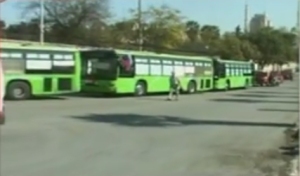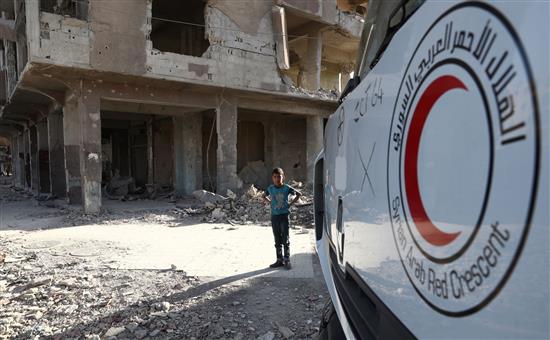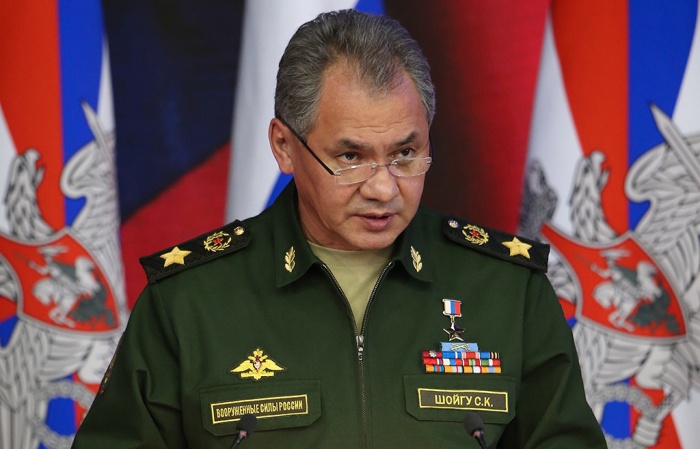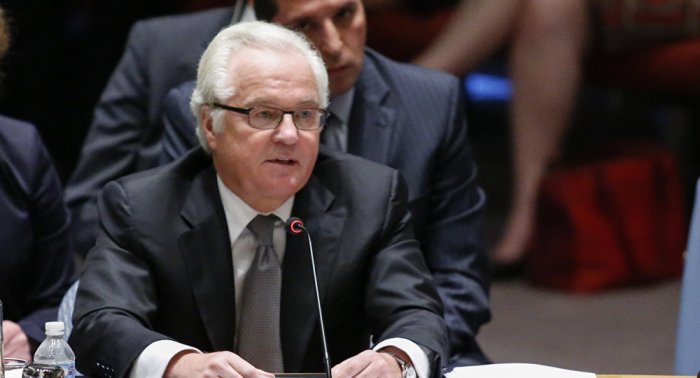Syrian rebels including jihadists counter-attacked the Syrian army and its allies on Friday aiming to break a weeks-long siege on eastern Aleppo, insurgents said.
The assault, employing heavy shelling and suicide car bombs, was mainly focused on the city’s western edge by rebels based in the countryside outside Aleppo. It included Jabhat Fateh al-Sham, a former affiliate of al Qaeda previously known as the Nusra Front, and groups fighting under the Free Syrian Army (FSA) banner.
The offensive prompted the Russian Defence Ministry to ask President Vladimir Putin for permission to resume air strikes against militants in rebel-held eastern Aleppo after 10 days in which the army said it had not struck, Russia’s Interfax news agency reported. But Putin said it was unnecessary to resume strikes yet, Kremlin spokesman Dmitry Peskov said.
The Syrian Observatory for Human Rights said more than 15 civilians had been killed and 100 wounded by rebel shelling of government-held western Aleppo. State media reported that seven civilians were killed.
There were conflicting accounts of advances in areas on the city’s outskirts. Photographs showed insurgents approaching Aleppo in tanks, armored vehicles, bulldozers, make-shift mine sweepers, pick-up trucks and on motorcycles, and showed a large column of smoke rising in the distance after an explosion.
Fateh al-Sham said in a statement that rebels had gained control over Dahiyet al-Assad, a suburb with a low-rise residential district of about a square kilometer on the southwest corner of the city.
![A screenshot from a propaganda video published by the Islamic Front showing bombardment of Dihayat Al-Assad in southwestern Aleppo [29/10/2016]](https://nworldnews.files.wordpress.com/2016/10/aleppo-161029-01.jpg?w=700&h=394)
Zakaria Malahifji, an official with Fastaqim, a nationalist rebel group in the offensive, said insurgents had captured the residential area but not the whole of Dahiyet al-Assad. The Observatory said rebels had gained most of the suburb.
But a Syrian military source said earlier that the army and its allies had thwarted what he called “an extensive attack” on south and west Aleppo. A state television station reported that the army had destroyed four car bombs.
Rebel bombardment
Abu Anas al-Shami, a member of the Fateh al-Sham media office, told Reuters from Syria the group had carried out two “martyrdom operations”, after which its fighters had gone in and had been able to “liberate a number of important areas”. A third such attack had been carried out by another Islamist group.
A senior official in the Levant Front, an FSA group, said: “There is a general call-up for anyone who can bear arms.” “The preparatory shelling started this morning,” he added.
Heavy rebel bombardment, with more than 150 rockets and shells, struck southwestern districts, the Observatory said.
Fateh al-Sham played a big part in a rebel attack in July that managed to break the government siege on eastern Aleppo for several weeks before it was reimposed. Abu Youssef al-Mouhajir, an official from the powerful Ahrar al-Sham Islamist group, said the extent of cooperation between the different rebel factions was unusual, and that the largest axis of attack was on the western edge of the city. “This long axis disperses the enemy and it provides us with good cover in the sense that the enemy’s attacks are not focused,” he said.
Jihadists
The powerful role played by Jabhat Fateh al-Sham, listed by many countries as a terrorist group, has complicated Western policy toward supporting the anti-Assad opposition. The United States has prevented more powerful weapons such as anti-aircraft missiles from being supplied to rebels partly out of fear they could end up in jihadist hands.
The Syrian military source said Friday’s attack had been launched in coordination with Daesh. Daesh jihadists did clash with the Syrian army on Friday at a government-held airbase 37km (23 miles) east of Aleppo, next to territory the jihadist group already controls, the Observatory reported.
Mouhajir, the Ahrar al-Sham official, said cloudy weather was helping to reduce the aerial advantage enjoyed by the Syrian military and its Russian allies. Inside Aleppo, tyres were also burnt to create a smokescreen against air strikes.
Grad rockets were launched at Aleppo’s Nairab air base before the assault began said Malahifji of the Fastaqim rebel group, adding that it was going to be “a big battle”. The Observatory also said that Grad surface-to-surface rockets had struck locations around the Hmeimim air base, near Latakia.
Sources: Reuters/Syria & Iraq News
![US Secretary of State John Kerry and Ruusian Foreign Minister Sergey Lavrov at a joint press conference in Geneva [10/9/2016]](https://nworldnews.files.wordpress.com/2016/09/john-kerry-sergei-lavrov-160910-01.jpg?w=700&h=370)
![Iraqi Kurdish security forces patrol a street in the city of Kirkuk on Saturday 22/10/2016 [photo by Reuters]](https://nworldnews.files.wordpress.com/2016/10/kirkuk-161022-01.jpg?w=700&h=466)




![Iraqi PM announces in televised speech the start of the operation to recapture Mosul from Daesh [17/10/2016]](https://nworldnews.files.wordpress.com/2016/10/haider-al-abadi-161017-01.jpg?w=700)
![UK Foreign Secretary Boris Johnson and US Secretary of State John Kerry briefing journalists after their meeting in London [16/10/2016]](https://nworldnews.files.wordpress.com/2016/10/boris-johnson-john-kerry-161016-01a.jpg?w=700&h=394)